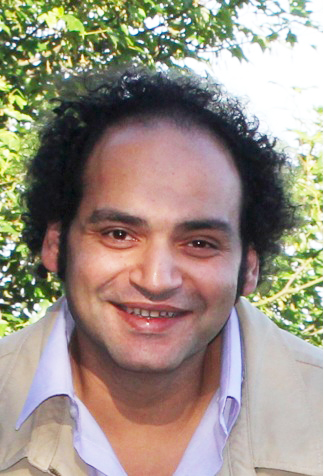
(AFP PHOTO)
AFP- World powers and Iran held a third day of crunch talks on Tehran’s nuclear programme Saturday with top diplomats saying progress was being made but there was no certainty of a deal.
Adding diplomatic weight to the negotiations, Russian Foreign Minister Sergei Lavrov had arrived in Geneva, where his US, British, French and German counterparts rushed on Friday hoping to seal a breakthrough.
The hoped-for agreement — seen as a first step ahead of further talks on a final deal — could see Tehran freeze its nuclear efforts for as long as six months in exchange for some relief from the sanctions that have battered its economy.
Western officials, including US Secretary of State John Kerry who cut short a Middle East tour to join the talks, have expressed caution, warning major obstacles remain to be overcome.
But hopes were nonetheless high that a breakthrough first-stage agreement was in the works in the decade-old standoff.
“These negotiations have made very good progress and continue to make progress,” British Foreign Secretary William Hague told journalists, adding though that it was “too early” to be sure a deal could be reached on Saturday.
“There is now a real concentration on these negotiations so we have to do everything we can to seize the moment and seize the opportunity to reach a deal that has eluded the world,” he said.
France in particular was considered to have concerns about the deal, with its Foreign Minister Laurent Fabius saying there were “some points on which we are not satisfied”.
“There is an initial draft that we do not accept… I have no certainty that we can finish up” at this stage, Fabius told France Inter radio before talks started on Saturday.
In a series of meetings early Saturday, Kerry and the European ministers met with EU diplomatic chief Catherine Ashton, who has represented the six world powers at the talks.
Fabius then entered separate talks with Ashton and Iranian Foreign Minister Mohammad Javad Zarif.
Kerry, Ashton and Zarif were to hold talks later Saturday, after the three met until nearly midnight on Friday.
If some sort of agreement is reached, it would be a breakthrough after a decade of negotiations between Iran and the P5+1 group comprising the United States, Britain, France, Germany, Russia and China.
Reports say the proposed deal could see Tehran stop enriching uranium to 20 percent, which is just a few technical steps from weapons grade, reduce existing stockpiles and agree not to activate its plutonium reactor at Arak.
Global powers would in exchange take limited and “reversible” measures to ease sanctions, such as unfreezing some Iranian funds in foreign accounts.
Negotiators would then have time to work out a more comprehensive deal that Tehran has said it hopes could be in place within a year.
A source in the French delegation said Paris was concerned about moving too quickly and ending up with a deal that could fall apart.
“We want to avoid the euphoria of a glass half-full,” the source told AFP. “This is why we are being demanding.”
“If we want something that is credible in the long-term, we need to be clear on what is to come,” the source said.
The possible deal already came under fire from Israel, which has staunchly opposed any easing of sanctions against Iran.
Israeli Prime Minister Benjamin Netanyahu, who hosted Kerry on a brief stopover before Geneva, urged world powers on Friday to back away from the agreement.
“Iran got the deal of the century and the international community got a bad deal, this is a very bad deal. Israel utterly rejects it,” Netanyahu told reporters.
Washington rejected the Israeli criticism, saying there was no deal yet for Israel to criticise.
US President Barack Obama also called Netanyahu after his remarks and “underscored his strong commitment to preventing Iran from obtaining a nuclear weapon,” the White House said.
The world powers in the talks suspect Tehran’s programme is aimed at developing nuclear weapons, despite Iran’s repeated denials.
Iran also expects to sign an accord with the chief of the UN nuclear watchdog on Monday that will include “concrete actions,” Tehran’s ambassador to the agency, Reza Najafi, told state television.
The International Atomic Energy Agency (IAEA) has said its chief, Yukiya Amano, will travel to Tehran on Monday to discuss “technical issues” related to monitoring of Iran’s nuclear programme.
The two tracks of talks — with the IAEA and P5+1 — over Iran’s atomic activities were given new momentum by the June election of Iranian President Hassan Rouhani, seen as a relative moderate.
Iran is anxious for relief from crippling US and EU economic sanctions that have cut oil revenues by more than half, caused the value of its currency the rial to plunge and pushed inflation above 40 percent.


